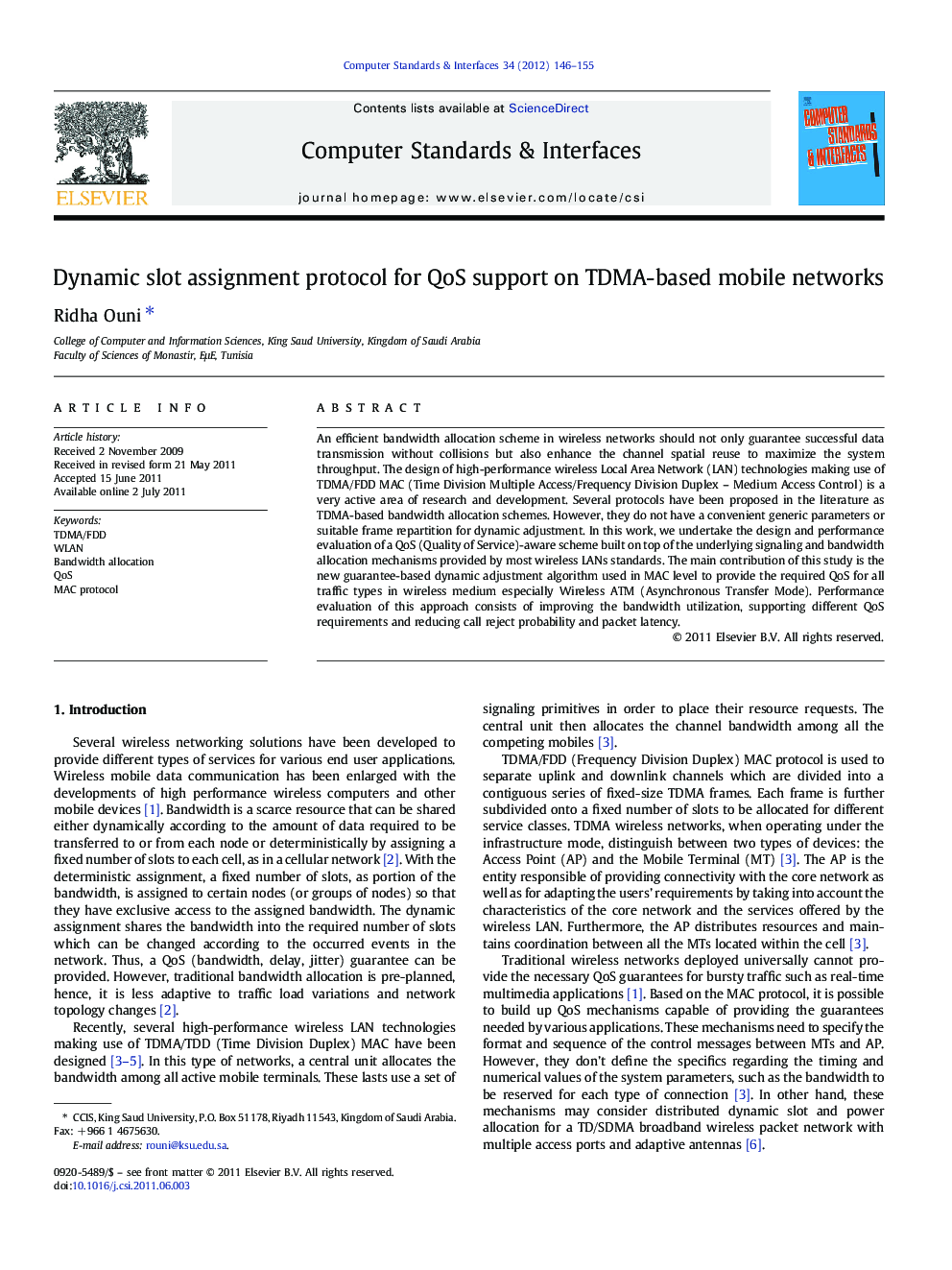| Article ID | Journal | Published Year | Pages | File Type |
|---|---|---|---|---|
| 453411 | Computer Standards & Interfaces | 2012 | 10 Pages |
An efficient bandwidth allocation scheme in wireless networks should not only guarantee successful data transmission without collisions but also enhance the channel spatial reuse to maximize the system throughput. The design of high-performance wireless Local Area Network (LAN) technologies making use of TDMA/FDD MAC (Time Division Multiple Access/Frequency Division Duplex – Medium Access Control) is a very active area of research and development. Several protocols have been proposed in the literature as TDMA-based bandwidth allocation schemes. However, they do not have a convenient generic parameters or suitable frame repartition for dynamic adjustment. In this work, we undertake the design and performance evaluation of a QoS (Quality of Service)-aware scheme built on top of the underlying signaling and bandwidth allocation mechanisms provided by most wireless LANs standards. The main contribution of this study is the new guarantee-based dynamic adjustment algorithm used in MAC level to provide the required QoS for all traffic types in wireless medium especially Wireless ATM (Asynchronous Transfer Mode). Performance evaluation of this approach consists of improving the bandwidth utilization, supporting different QoS requirements and reducing call reject probability and packet latency.
► The compensation algorithm employs non-guaranteed slots for dynamic bandwidth allocation. ► The compensation of time slots increases the throughput and decreases the blocking probability. ► Rewarding released slots for MT transmitting with lower QoS improves resource utilization rate. ► Processing handoff requests with high priority decreases the call blocking probability.
